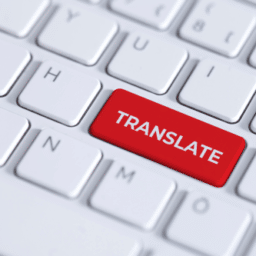
Have you ever heard the term ‘native language’ and wondered what it means? We can assure you that it is indeed a fascinating topic to discuss.
This article will provide answers to anyone interested in this specific term and intriguing facts associated with it. The definitions of the term and examples of its use will also be presented. Let’s have a closer look.
Contents
Definition of native language
The term ‘native language’ most often refers to a language acquired in early childhood, usually because of the immediate environment, i.e., family or friends who spoke that particular language. A way to learn a native language is to grow up in a place where a specific language is generally spoken.
For example, if you and your family have lived in France since you were born, the most probable outcome will be that your native language will be French.
The term ‘native language’ is also known as first language, mother tongue, native tongue, and dominant language.
Who are native speakers?
According to Cambridge Dictionary, a native speaker is “someone who has spoken a particular language since they were a baby, rather than having learned it as a child or adult”.
In simpler terms, for a native speaker the language he speaks must be a very simple matter, or rather very natural. Instead of wondering what certain expressions would sound like and translating them from one language to another, which is what most polyglots have to go through (even after years and decades of practice), you are already thinking in the language.
Bilingual? Multilingual? What kind of people ARE They, and can you become one of them?
According to the Oxford Advanced Learner’s Dictionary definition, a bilingual person is someone “who can speak two languages equally well”. So that means fluency in more than one language is a must. In other word, it is a person who has two native languages. Who is a multilingual person then?
As the definition of the Cambridge Dictionary explains, a multilingual person is someone who is “able to use more than two languages for communication”. Such a person must have a minimum of two more languages mastered to the level of full fluency in addition to their first language.



How to become bilingual or multilingual?
Native language is usually the language introduced to someone in early childhood. The number of bilingual children increases, and is becoming the standard rather than the exception to the rule.
Apart from international and bilingual schools, the most common way in which children acquire more than one native language is through their parents’ different nationalities. Both mother and father speak to their kids in their native languages, so that the children are constantly surrounded by different languages which they naturally learn.
Another way is to move to a country other than where the parents are from, in childhood. This way, the home environment provides exposure to one native language, while the external environment such as school or friends ensures the acquisition of another language.
How CAN mastering multiple native languages be useful?
Parents strive to ensure that their children have a better life through the acquisition of more languages. Learning new languages, especially at a very young age, is quite beneficial. Being able to speak more than one native language not only gives us an advantage and makes it easier in adulthood, but also helps in the overall development of the brain and learning skills such as problem-solving thinking, memory, and creativity.
Being multilingual is particularly useful in translations, where it is important not only to have language skills but also to understand the cultural context, such as the traditions, history or literature of a particular country.
Examples of the use of ‘native language’ in a sentence
- The native language spoken in Korea is Korean.
- The native language is the language we are exposed to from infancy.
- My mum is from Poland, but my dad is from Spain, so my native language is not only Polish but also Spanish.
- My parents speak Chinese and Japanese, but when I was two, we moved to Germany, so my native languages are those of my parents, and German.
According to the definition of a native language claims that it is usually impossible to become a native speaker of another language once you are an adult.
What about other languages?
Even multilingual people don’t know all the languages and can sometimes have a problem understanding a letter or other text from a foreign country. What to do in that situation? Contact us! We provide translations in multiple languages, such as Spanish, French, Polish, Italian, and many more.















